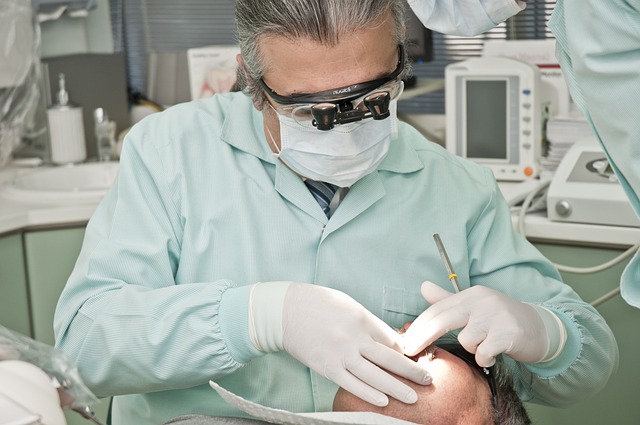Unlocking the secrets of cosmetic dentistry, we delve into the perplexing question: why do veneers sometimes appear unnatural?
1. Understanding the Basics: The Science Behind Veneers and Their Natural Look
Veneers are a popular cosmetic dentistry solution that can dramatically enhance the appearance of your smile. Understanding the science behind veneers and how they achieve a natural look is essential for anyone considering this treatment option.
1. Material Composition: Veneers are typically made of thin porcelain or composite materials that are carefully crafted to mimic the natural color and translucency of your teeth. This allows them to blend seamlessly with your existing teeth, ensuring a natural and harmonious smile.
2. Customization: Each veneer is custom-made to match the unique shape and size of your teeth. This level of personalization ensures that the veneers will look and feel natural in your mouth. Your dentist will work closely with you to determine the desired shade, shape, and size of the veneers, taking into consideration factors such as your facial features and your overall smile aesthetic.
3. Placement Process: Veneers are securely bonded to the front surface of your teeth using specialized dental adhesive. Prior to placement, a thin layer of enamel may be removed to ensure a proper fit. This minimally invasive procedure allows the veneers to lay flush with your natural teeth, resulting in a seamless and realistic appearance.
4. Natural Reflection of Light: The materials used in veneers are designed to reflect light in a similar way to natural tooth enamel. This property contributes to their natural look, as they can replicate the subtle variations in color and texture that occur in real teeth. The result is a smile that is aesthetically pleasing and indistinguishable from natural teeth.
5. Stain Resistance: Another advantage of veneers is their resistance to staining. Porcelain veneers, in particular, are highly resistant to discoloration caused by food, beverages, and tobacco. This ensures that your veneers will maintain their natural appearance for years to come, allowing you to confidently show off your smile.
Overall, understanding the science behind veneers reveals the meticulous craftsmanship and attention to detail that goes into creating a natural-looking smile. The combination of customized design, material composition, and placement process ensures that veneers seamlessly blend with your natural teeth, providing you with a beautiful and confident smile.
2. Key Factors Influencing the Authenticity of Veneers: A Deep Dive into Materials and Techniques
In order to ensure the authenticity of veneers, it is crucial to understand the key factors that influence their overall quality. This deep dive into materials and techniques will provide valuable insights into what makes veneers authentic and how different approaches can drastically impact the final result.
Materials play a vital role in determining the authenticity of veneers. High-quality, durable materials such as porcelain are commonly used, as they mimic the natural translucency and color variations of real teeth. Other popular materials include composite resin, which offers greater flexibility in shaping and matching the patient’s natural teeth. Moreover, the use of modern bonding agents enhances the longevity and stability of the veneers, ensuring a reliable and long-lasting result.
- High-quality materials, like porcelain, mimic natural teeth
- Composite resin allows for customized shaping
- Modern bonding agents ensure longevity and stability
- Translucency and color variations play a crucial role in authenticity
The techniques used during the veneer placement process are equally important for achieving an authentic appearance. The skill and expertise of the dental professional can greatly influence the final outcome. Proper tooth preparation, including careful removal of any excess enamel, is crucial for a seamless fit and natural aesthetic. The precise layering of materials and meticulous attention to detail in shaping and polishing the veneers are also instrumental in achieving a realistic appearance. By combining the right materials with expert techniques, dental professionals can create veneers that closely mimic the look and feel of natural teeth.
- Proper tooth preparation ensures a seamless fit
- Precise layering and shaping techniques contribute to authenticity
- Meticulous attention to detail in polishing enhances the natural look
- Expertise and skill of the dental professional play a significant role
3. The Art of Shade Selection: Achieving a Seamless Blend with Natural Teeth
When it comes to dental restorations, achieving a seamless blend with natural teeth is of utmost importance. The art of shade selection plays a crucial role in this process, allowing dentists to create restorations that are indistinguishable from the surrounding natural teeth. Here are some key tips and techniques to help you master the art of shade selection:
1. Understand the biological variation:
- Teeth are not all the same color;
- Colors vary along the length of a single tooth;
- Surrounding natural teeth can influence the perception of color;
- Avoiding a monochromatic shade selection will result in a more natural and realistic restoration.
2. Utilize shade guides:
- Invest in a high-quality shade guide with a wide range of shades;
- Hold the guide next to the patient’s teeth in natural lighting for accurate comparisons;
- Take note of the existing tooth shade and the desired outcome;
- Consider factors such as translucency, opacity, and value;
- Take digital photographs to aid in shade selection and documentation.
4. Mastering Shape and Proportion: Creating Veneers that Harmonize with Facial Features
In order to achieve a truly harmonious smile, it is crucial to master the art of shaping and proportioning veneers to seamlessly blend with the patient’s facial features. This requires careful consideration of various aspects such as the shape of the face, the size and position of the teeth, and the patient’s overall aesthetic goals. Here are some key tips to help you create veneers that perfectly complement the facial features:
1. Facial Analysis: Take time to analyze the patient’s face, noting its unique shape and proportions. Consider factors such as facial symmetry, the prominence of certain features, and the individual’s natural smile line. This analysis will serve as a guide for creating veneers that enhance rather than overpower the patient’s natural beauty.
2. Customized Shapes: Every patient has a distinct set of teeth and facial structure, and therefore, a one-size-fits-all approach won’t do. Tailor the shape of the veneers to match the patient’s organic tooth morphology, ensuring a seamless and natural appearance. Whether it’s a more rounded shape for a softer look or a squarer shape for a strong and masculine aesthetic, choose the right veneer shape to achieve a harmonious balance. Utilize CAD/CAM technology for precise customization.
5. The Role of Smile Design: Bringing Balance and Individuality to Veneer Makeovers
A smile design plays a critical role in achieving balanced and individualized veneer makeovers. By carefully considering the unique characteristics of each patient’s smile, dentists can create a customized treatment plan that takes into account the individual’s facial features, gum line, and tooth shape.
Here are some key elements to consider when designing a smile for veneer makeovers:
- Facial harmony: A skilled dentist understands the importance of creating a smile that complements the patient’s facial features. By analyzing the patient’s facial shape, size, and symmetry, they can design veneers that enhance the natural beauty of the face.
- Gum line aesthetics: The position and shape of the gum line greatly impact the overall appearance of a smile. Dentists carefully evaluate the patient’s gum line to ensure it frames the veneers perfectly.
- Tooth proportions and symmetry: Achieving a balanced smile involves evaluating the size, shape, and alignment of the patient’s teeth. Through meticulous planning, dentists can create veneers that harmonize with the patient’s existing teeth, resulting in a natural-looking smile.
- Color and translucency: The color and translucency of veneers are key factors in achieving a lifelike appearance. Dentists work closely with patients to select the ideal shade, ensuring that it blends seamlessly with the rest of their teeth.
By considering these aspects and carefully designing each patient’s smile, veneer makeovers can deliver not only a beautiful and balanced result but also a smile that uniquely reflects the individual’s personality and character.
6. Expert Tips for Customization: Ensuring Veneers Complement Your Unique Smile
When it comes to customizing veneers, it’s important to ensure that they not only enhance the appearance of your smile but also complement your unique features. Here are some expert tips to help you achieve the perfect customization:
- Consultation with a Cosmetic Dentist: Start by consulting with a cosmetic dentist who has experience in veneer customization. They will thoroughly examine your teeth, facial structure, and discuss your desired results.
- Consider Your Facial Features: Your veneers should be designed to suit your facial features, such as the shape of your face and lips. A skilled dentist will take these factors into account to create veneers that harmonize with your natural beauty.
- Selecting the Right Shade: Choosing the right shade is crucial for a natural and beautiful smile. It’s important to consider not only the color of your natural teeth but also your skin tone and the whites of your eyes. Your dentist will guide you in selecting the shade that complements your unique smile best.
- Smile Design: Customizing veneers involves carefully planning the shape and size of each tooth. This process, known as smile design, ensures that your veneers blend seamlessly with your surrounding teeth and enhance the overall aesthetics of your smile.
By following these expert tips, you can be confident that your veneers will be customized to suit your individual smile, resulting in a naturally beautiful and enhanced appearance.
7. The Significance of Surface Texture: Replicating the Feel of Natural Enamel
The texture of a dental material plays a crucial role in replicating the natural look and feel of enamel. By successfully recreating the surface texture of natural enamel, dental restorations can provide patients with a more genuine and aesthetically pleasing result. But why is surface texture so significant?
1. Enhancing Esthetics: Surface texture not only affects the appearance of a dental restoration but also contributes to its overall esthetics. By matching the texture of natural enamel, restorations can seamlessly blend in with the surrounding teeth, creating a harmonious smile. This is particularly important for front teeth restorations, where an unnatural texture can make the restoration stand out and appear artificial.
2. Improving Functionality: The surface texture of enamel is designed to assist in chewing and speech, providing a smooth and efficient function. Replicating this texture in dental restorations ensures that patients can chew and speak comfortably as if they had their natural teeth. Additionally, a proper surface texture can help prevent plaque accumulation and maintain oral hygiene by allowing for thorough cleaning and reducing the risk of tooth decay or gum disease.
8. Lifelike Veneers: How Dentists Utilize Light Reflection to Achieve a Realistic Appearance
Dentists are constantly striving to create the most natural-looking results for their patients, and lifelike veneers are a perfect example of their dedication to achieving a realistic appearance. By utilizing light reflection techniques, dentists are able to enhance the visual appeal of veneers and make them virtually indistinguishable from natural teeth.
One of the key aspects in creating lifelike veneers is understanding how light interacts with different materials. Dentists carefully select high-quality materials that mimic the translucency and color variations found in natural teeth. The way light is reflected off these materials is crucial in achieving a realistic appearance. Additionally, dentists pay close attention to the placement of the veneers to ensure that they blend seamlessly with the surrounding teeth, further enhancing their natural look. This meticulous attention to detail enables dentists to create veneers that not only look lifelike but also provide a comfortable and functional bite.
- Light reflection techniques are used to enhance the visual appeal of veneers
- High-quality materials are chosen to mimic the translucency and color variations of natural teeth
- Veneers are carefully placed to blend seamlessly with surrounding teeth
The combination of these factors allows dentists to achieve lifelike veneers that are virtually indistinguishable from natural teeth. Patients can confidently smile, knowing that their veneers not only look natural but also function like real teeth. With the advancement in dental technology, dentists continue to refine their techniques to offer patients the most realistic results possible.
9. The Anatomy of a Natural Smile: Incorporating Imperfections for Authenticity
A natural smile is a reflection of our true selves, incorporating imperfections that make us unique and authentic. While many strive for perfection in their smiles, embracing the natural beauty of our individuality can have a more profound impact. Here, we will explore the anatomy of a natural smile and how incorporating imperfections can add charm and genuineness to our smiles.
A key element of a natural smile is the positioning of our teeth. Instead of seeking a flawless, symmetrical alignment, a natural smile may feature slightly crooked or overlapping teeth. These imperfections can create character and add a sense of authenticity to our smiles. It’s important to remember that our teeth are naturally diverse, and embracing these individual characteristics can enhance our overall appearance. Moreover, a natural smile often involves a slightly irregular gum line, which can contribute to a more genuine and unique smile.
10. Beyond Aesthetics: Functional and Long-Lasting Veneers for Enhanced Confidence
Achieving a confident smile goes beyond aesthetics with functional and long-lasting veneers. These cosmetic dental enhancements not only improve the appearance of your teeth but also provide durability for long-lasting results. Veneers are thin, custom-made shells that are bonded to the front surface of the teeth, addressing cosmetic concerns such as discoloration, chips, and misalignment.
Unlike traditional dental procedures, veneers offer a less invasive solution that preserves the natural tooth structure. The materials used in veneers are carefully chosen for their durability, ensuring that they withstand everyday wear and tear. With proper care and maintenance, veneers can last for many years, showcasing your enhanced confidence and natural-looking smile. Whether you are looking to address a single tooth or enhance your entire smile, veneers are a versatile option that can be customized to suit your unique needs. Seeking professional dental advice is crucial to determine if veneers are the right choice for you.
In conclusion, veneers may look fake because of improper shading, improper sizing, lack of surface texture, or overuse of materials. By consulting a skilled cosmetic dentist and ensuring a customized approach, you can achieve natural-looking veneers that enhance your smile beautifully. Bear in mind these factors to avoid the pitfalls and enjoy the flawless results you desire.






